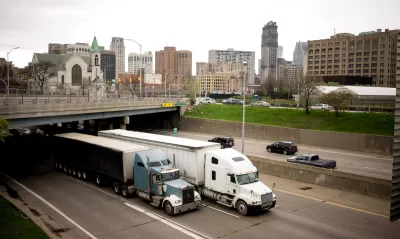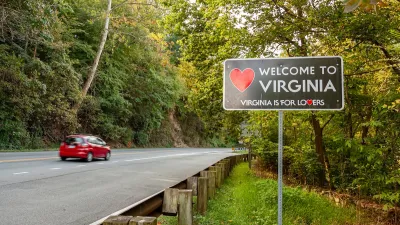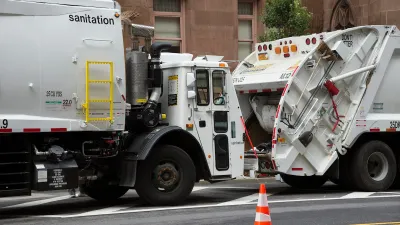Sensors installed along a segment of Interstate 94 could help improve safety, limit speeding, and alert officials to potholes and debris.

The Michigan Department of Transportation (MDOT) and Cavnue, a Washington, D.C.-based technology firm, are launching a “smart road” pilot project designed to make roads safer and traffic flow more efficient.
According to an article by Anne Snabes in The Detroit News, “The pilot is the first stage of a larger project, which envisions a technology-enabled express lane along each direction of I-94 between Ann Arbor and Detroit.”
Snabes adds that “It's one of several examples of how connected vehicle technology is being adopted on roads in Metro Detroit. The Macomb County Department of Roads has set up devices at all of its signalized intersections that will tell future cars information, such as if they're about to run a red light. Oakland County has added these devices to a small number of its intersections, and Wayne County is using technology to track salt trucks.”
The I-94 project involves a special road coating, sensor poles, and fiber installed under the roadway. The sensor poles collect data that will be used to communicate with vehicles to help reduce speeding, alert drivers to pedestrians and cyclists in intersections, and recognize things like debris and potholes in the roadway.
FULL STORY: How Connected Vehicles Are Changing Detroit’s Roads

Alabama: Trump Terminates Settlements for Black Communities Harmed By Raw Sewage
Trump deemed the landmark civil rights agreement “illegal DEI and environmental justice policy.”

Study: Maui’s Plan to Convert Vacation Rentals to Long-Term Housing Could Cause Nearly $1 Billion Economic Loss
The plan would reduce visitor accommodation by 25% resulting in 1,900 jobs lost.

Why Should We Subsidize Public Transportation?
Many public transit agencies face financial stress due to rising costs, declining fare revenue, and declining subsidies. Transit advocates must provide a strong business case for increasing public transit funding.

Wind Energy on the Rise Despite Federal Policy Reversal
The Trump administration is revoking federal support for renewable energy, but demand for new projects continues unabated.

Passengers Flock to Caltrain After Electrification
The new electric trains are running faster and more reliably, leading to strong ridership growth on the Bay Area rail system.

Texas Churches Rally Behind ‘Yes in God’s Back Yard’ Legislation
Religious leaders want the state to reduce zoning regulations to streamline leasing church-owned land to housing developers.
Urban Design for Planners 1: Software Tools
This six-course series explores essential urban design concepts using open source software and equips planners with the tools they need to participate fully in the urban design process.
Planning for Universal Design
Learn the tools for implementing Universal Design in planning regulations.
Caltrans
Smith Gee Studio
Institute for Housing and Urban Development Studies (IHS)
City of Grandview
Harvard GSD Executive Education
Toledo-Lucas County Plan Commissions
Salt Lake City
NYU Wagner Graduate School of Public Service





























